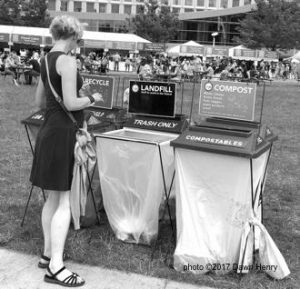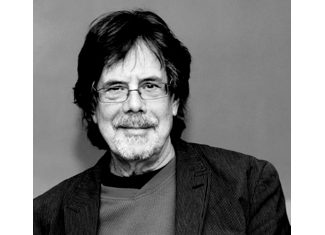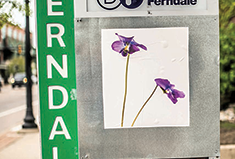Peter Werbe : August 2017
SOCCRA, the municipal corporation responsible for recycling in Ferndale and 11 surrounding communities, has recently dropped off 100 thousand 65-gallon recycling bins to area homes as replacements for the old 20-gallon standbys we put out on garbage day. You should have already received yours. The big green bins are three times the size of the ones they’re replacing, and since SOCCRA is converting to a mixed recycling facility, all curbside recyclables can now be dumped in them unsorted.
The Recycling Partnership, a national non-profit that is picking up a portion of the cost, wants to improve the relatively low U.S. recycling rates. The thinking behind making these behemoths the new standard is that people will recycle more since they have greater capacity.
The new containers total 250,000 pounds of un-recyclable plastic items inserted into our communities and mean that the old ones, also un-recyclable, will wind up in a landfill where most plastic produced finds its way. In fact, according to a study published in the July 2017 Sciences Advances, 91 per cent of plastic produced since 1950 – 8.3 billion metric tons – is not recycled regardless of the chasing arrows symbols and number system that we find on plastic products.
The new recycle carts are designed to encourage residents to fill the containers to the brim.
However, recycling is less than a zero-sum game. It actually worsens the environmental degradation of the planet. More recycling means an expanded industry with more factories, more machinery, more energy, more waste, its own refuse and garbage, more workers going to more work on more roads in more cars, with
additional suppliers, ad infinitum.
Disposal of household garbage, however, should only be a footnote when talking about waste. Americans generate ten billion tons of it yearly, but the vast majority —98 per cent — is from industrial and mining operations. The remaining two percent comes from municipal sources.
The emphasis on household recycling functions as a diversion from examining the big sources of waste. A close look at the myths about recycling shows they are being perpetrated less by those committed to ecology and more by those doing the most damage to the planet.
Though they don’t use the recycled substance in production, the American Plastics Council, an industry group f or virgin resin manufacturers (first-time-use plastics), is a relentless promoter of plastics recycling. They spend millions on public relations as part of a propaganda campaign to change the long-standing perception of their product as harmful to the environment.
or virgin resin manufacturers (first-time-use plastics), is a relentless promoter of plastics recycling. They spend millions on public relations as part of a propaganda campaign to change the long-standing perception of their product as harmful to the environment.
From its inception, plastic has been a synonym for the false and insubstantial. The late Frank Zappa sang about “Plastic People,” and the obscenely-whispered advice to “The Graduate,” similarly was, “Plastics.” Unfortunately, the businessman in the 1967 film was correct; the future did lie in that multi-use substance made from the oil for which the U.S. has been willing to kill several hundred thousand Iraqis.
The substitution of plastics for glass, wood and paper products has been so substantial that hardly anyone even notices. Any public event, a baseball game, for instance, produces massive amounts of plastic cups, plates and cutlery that have been used in some cases for only the seconds it takes to spill down ten ounces of beer before being consigned to a trash barrel. The cups arrive at the local landfill (they can’t be recycled), there to remain intact for hundreds of years, although their slow disintegration begins to release toxins.
They began their ignominious journey in an oil field thousands of miles away and are toxic every moment of their existence from drilling to oceanic and pipeline transportation, to manufacture and finally to disposal. Add wars to secure oil to the equation and you have the premier deadly modern energy source and product component.
The “at least we’re doing something” argument doesn’t work well either. The industrial recycling process which reclaims plastic is highly toxic and much of what is collected in our neighborhoods is shipped overseas and processed under uncontrolled conditions in notorious polluting countries like China and Thailand. In addition, most of the products which are manufactured from what is recycled, such as park benches, traffic strips, and polyester jackets, can’t be recycled a second time. What you set out at your curb is only one generation away from a landfill.
Originally, recycling was conceived of as the last resort in the triad of reduce, re-use, and recycle, the latter being used only for what couldn’t be controlled by the two other elements of waste control. To its credit, the City of Oak Park in announcing the arrival of the new bins, urges adherence to the first principles. But, “reduce,” which means limiting consumption or, at a minimum, less packaging, strikes at the heart of an economy which demands relentless expansion and always increased production and consumption.
On the personal level, there is no way what my household generates as waste can fill 45 more gallons of trash. And, shouldn’t!
How about you?
Peter Werbe is a member of Fifth Estate magazine’s editorial collective www.FifthEstate.org.
photo ©2017 Dawn Henry



